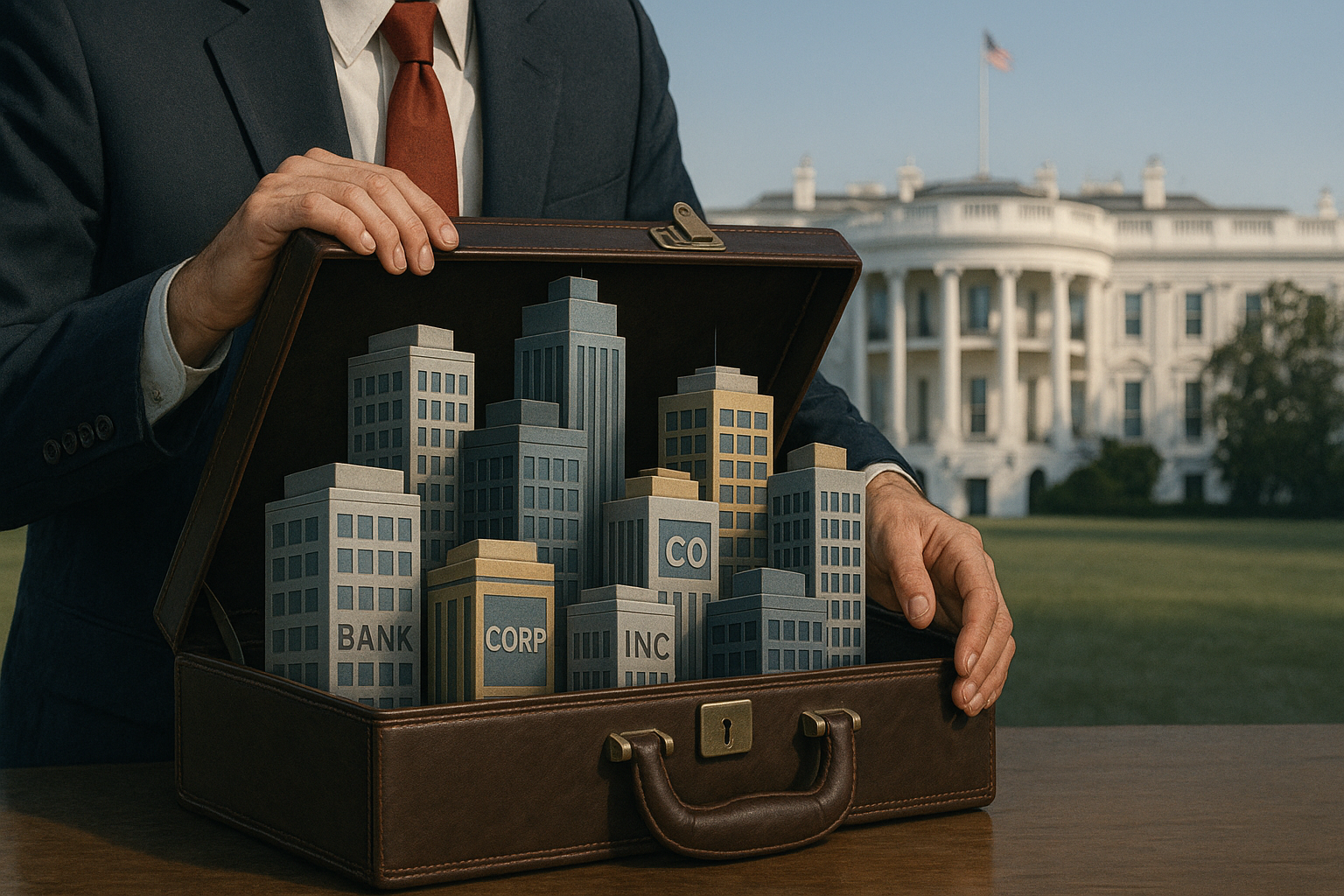Former President Donald Trump once expressed that he would "love a stake in every company that's doing well," according to an anecdote shared by Jayme White, chief of staff to U.S. Trade Representative Katherine Tai.
I've heard some eyebrow-raising statements from politicians over the years, but this one—revealed by USTR's Greta Peisch—stands out as particularly revealing.
The comment offers a startling glimpse into Trump's conception of the relationship between government and business. It's not just an off-the-cuff remark; it's a window into a worldview where the line between national interest and personal financial gain blurs beyond recognition.
Should we be surprised? Not really.
For anyone who watched Trump's presidency through the lens of his business background, this statement fits perfectly with his governing philosophy. This is a man who approached the presidency like a CEO—except most CEOs understand they answer to a board of directors, while Trump often behaved as though the country was his private enterprise.
The idea of the government taking equity stakes in successful companies represents a bizarre twist on American capitalism. Our system traditionally aims to create conditions where businesses can thrive independently, not to turn the state into some kind of national private equity firm extracting value from winners.
Look, there's something profoundly revealing about this mindset. Most politicians—whatever their party—at least pretend to approach economic policy thinking about overall welfare, job creation, or broader prosperity. Trump's framework seems fundamentally different. It's portfolio management, not governance.
This perspective helps explain many of his administration's economic moves.
His fascination with tariffs? Makes perfect sense if you view them not as tools for protecting industries but as leverage points for extracting concessions. His obsession with the stock market as the primary economic indicator? Pure portfolio-manager thinking.
(I've covered economic policy for years, and I've never seen a president so fixated on daily market movements as though they were personal performance reviews.)
What's particularly striking is the tension between Trump's free-market rhetoric and his deeply interventionist instincts. His administration championed deregulation while simultaneously engaging in unprecedented direct intervention in specific companies and sectors. This wasn't mere inconsistency—it was the application of a different principle altogether: maximizing leverage and seeking "wins" rather than implementing coherent economic philosophy.
There's an uncomfortable historical parallel worth noting.
Trump's desire for government stakes in successful companies bears resemblance to systems of state capitalism seen in certain authoritarian countries, where the boundaries between political power and economic interest intentionally blur. The crucial difference in America, thank goodness, is our system of checks and balances that prevented such impulses from being fully realized.
As we face the possibility of another Trump term, this comment serves as a useful reminder of his fundamental economic worldview.
It's not about managing a complex system for broad prosperity. It's about seeing opportunities for deals—and grabbing a piece of whatever's performing well.
The presidency isn't supposed to work that way. Presidents aren't meant to be equity partners in American enterprise; they're supposed to be stewards of the systems that allow businesses to thrive independently. The confusion between these roles isn't just some philosophical curiosity—it represents a profound misunderstanding of how government and markets should interact.
In the end, Trump's expressed desire wasn't just a casual comment. It revealed a mindset that fundamentally conflates national economic interest with personal financial interest, treating them as essentially the same thing.
Which seems... problematic, to put it mildly, for anyone occupying the Oval Office.
